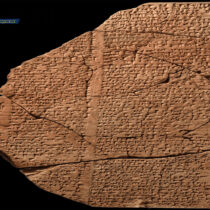The will as a legal document became customary when the social and political circumstances of the ancient world permitted the awakening of individualism that consequently affected the arts, the law and the institutions. Three are the landmarks in the historic evolution of the institution of the will in antiquity. Solon’s law, that enabled the childless couple to dispose of their property by will, the silent evolution of this law in the legal practice of the 4th century BC and finally the great popularity that wills gained during the Hellenistic period. In the Classical period, although the law of Solon was still effective, the Athenians were writing wills even when they had legitimate sons with the purpose of dividing their property evenly between heirs or to bequeath a certain part of their property to a third person. The type and content of the will in the Hellenistic age had no relation whatsoever to the Solonian law. Citizens and foreigners, men and women both, received equal treatment as regards their right to dispose of their property after death. The Hellenistic wills were usually rich and interesting in content. They contained a description of the testator, his name, age and profession; they mentioned whether he was illiterate or not. In some cases someone had written the will on behalf of the testator; they also stated that the testator was sane and that the document had to be considered as declaration of last will; then the witnesses and heirs were mentioned and the provisions prohibiting the violation of the will terms followed. The document was signed by the testator and the witnesses and once more reference was made to the provisions of the will. Occasionally the executor of the will was mentioned who was usually the royal family. The established form as well as the content of the wills of the Hellenistic period,was normally drawn up by a notary, herald of the modern public wills.
The drawing up of wills in antiquity
31 Jul 2012
by Archaeology Newsroom
- A
- A
- A


